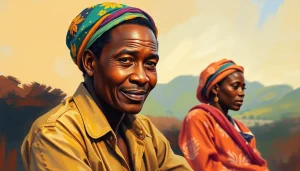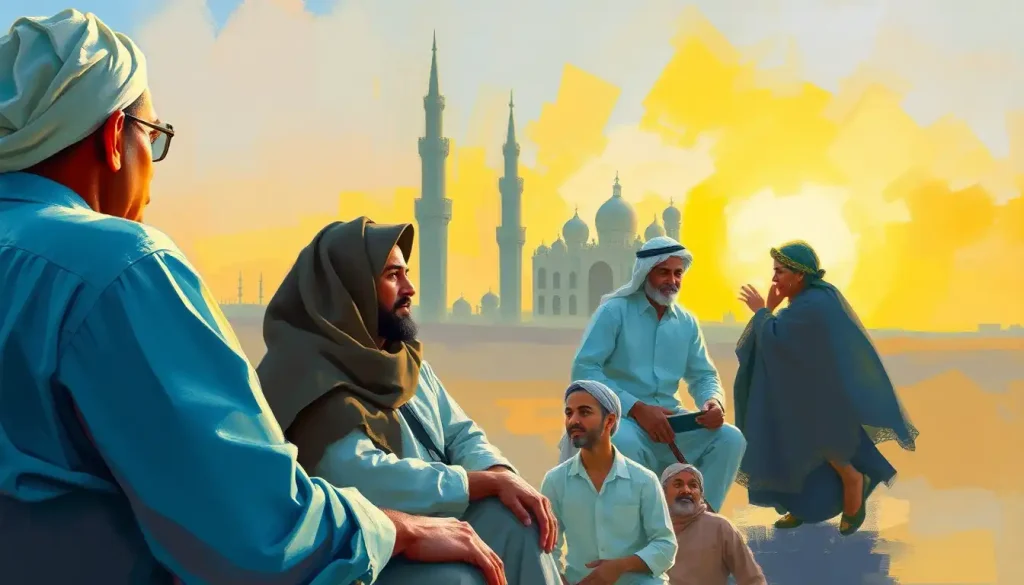Between glittering skyscrapers in Johannesburg and bustling markets in Lagos lies a story of staggering economic contrasts that challenges everything you thought you knew about modern wealth distribution. Africa, a continent of immense diversity and potential, presents a complex tapestry of economic realities that defy simple categorization. From the diamond mines of Botswana to the tech hubs of Nairobi, the narrative of wealth in Africa is one of both promise and paradox.
Wealth in Africa isn’t just about numbers on a balance sheet. It’s a multifaceted concept that encompasses natural resources, human capital, cultural heritage, and economic opportunity. The current state of wealth across the continent is as varied as its 54 countries, with some nations boasting rapidly growing economies and others struggling with persistent poverty. Understanding this economic landscape is crucial not only for those interested in investment opportunities but for anyone seeking to grasp the complexities of global economic development.
The Roots of African Wealth: A Historical Perspective
To truly comprehend the present economic situation in Africa, we must delve into its rich history. Long before European colonization, Africa boasted sophisticated economic systems. Ancient trade routes crisscrossed the continent, facilitating the exchange of goods, ideas, and cultures. The wealthy kingdoms of Mali, Ghana, and Great Zimbabwe were testament to the economic prowess of pre-colonial Africa.
However, the arrival of colonial powers dramatically altered the economic landscape. European nations exploited Africa’s vast natural resources, disrupting traditional economic structures and implementing systems that primarily benefited the colonizers. This period of history had profound and lasting effects on wealth distribution across the continent.
The decolonizing of wealth became a significant challenge in the post-independence era. Newly formed African nations faced the daunting task of rebuilding their economies while grappling with the lingering effects of colonialism. Some countries, like Botswana, managed to leverage their natural resources for economic growth, while others struggled with political instability and economic mismanagement.
Fueling the Engine: Key Drivers of Wealth Creation in Africa
Today, Africa’s wealth creation is driven by a diverse array of factors. The continent’s abundant natural resources continue to play a crucial role. From oil in Nigeria to diamonds in Botswana, Africa’s mineral wealth has been a significant source of economic growth. However, the reliance on commodities has also made many African economies vulnerable to price fluctuations in global markets.
Emerging industries and technological advancements are reshaping the economic landscape. The rise of mobile banking in Kenya, for instance, has revolutionized financial services across East Africa. Tech hubs in cities like Lagos, Nairobi, and Cape Town are nurturing a new generation of entrepreneurs and innovators.
Foreign direct investment (FDI) and economic partnerships have also played a crucial role in wealth creation. Countries like China have made significant investments in African infrastructure and industries. While these investments have spurred economic growth, they’ve also raised concerns about economic dependency and resource exploitation.
Entrepreneurship and small business growth are increasingly recognized as vital engines of economic development. From street vendors in Cairo to tech startups in Kigali, small businesses are creating jobs and driving innovation across the continent.
A Tale of Two Cities: Wealth Disparities Across African Regions
The distribution of wealth in Africa is far from uniform. Countries like South Africa, Nigeria, and Egypt have some of the continent’s largest economies, but they also grapple with significant income inequality. Meanwhile, nations like Rwanda and Ethiopia have achieved impressive economic growth rates in recent years, though from a lower base.
The urban-rural divide is particularly stark in many African countries. Cities like Nairobi and Johannesburg have become hubs of wealth and opportunity, attracting both domestic and international investment. However, rural areas often lag behind, lacking basic infrastructure and economic opportunities.
Gender inequality remains a significant challenge in wealth distribution across Africa. While women play a crucial role in African economies, particularly in agriculture and informal sectors, they often face barriers to education, property ownership, and formal employment. Addressing these disparities is crucial for inclusive economic growth, as highlighted in discussions about women’s wealth globally.
Roadblocks on the Path to Prosperity: Challenges to Wealth Creation
Despite its immense potential, Africa faces several challenges in wealth creation and distribution. Political instability and corruption have hindered economic growth in many countries. The mismanagement of resources and lack of transparency have often resulted in wealth concentration among political elites, leaving the majority of the population in poverty.
Infrastructure deficits pose another significant challenge. Inadequate transportation networks, unreliable power supply, and limited access to clean water hamper economic activities and deter investment. Addressing these infrastructure gaps is crucial for unlocking Africa’s economic potential.
Limited access to quality education and healthcare also impedes wealth creation. While progress has been made in increasing school enrollment rates, the quality of education often falls short of preparing students for the modern job market. Similarly, inadequate healthcare systems not only affect the well-being of the population but also strain economic resources.
Brain drain, the exodus of skilled professionals to other continents, continues to impact Africa’s economic growth. Many of Africa’s brightest minds seek opportunities abroad, depriving the continent of valuable human capital. However, this trend has also led to significant remittances, which contribute to many African economies.
Bridging the Gap: Strategies for Inclusive Wealth Growth
Promoting inclusive wealth growth in Africa requires a multifaceted approach. Government policies and economic reforms play a crucial role. Many African countries have implemented reforms to improve their business environments, attract investment, and promote economic diversification.
Investment in human capital and education is paramount. Countries like Rwanda have made significant strides in improving access to education and skills training, recognizing that a well-educated workforce is essential for economic development.
Fostering innovation and technology adoption can help African countries leapfrog traditional development stages. The success of mobile banking in Kenya demonstrates how innovative solutions can address local challenges and create new economic opportunities.
Regional economic integration and trade offer another pathway to wealth creation. Initiatives like the African Continental Free Trade Area (AfCFTA) aim to boost intra-African trade and create a more integrated continental market.
The Future of Wealth in Africa: Challenges and Opportunities
As we look to the future, Africa’s economic landscape continues to evolve. The continent’s young and growing population presents both a challenge and an opportunity. Harnessing this demographic dividend through education and job creation will be crucial for future economic growth.
Climate change poses significant risks to African economies, particularly those reliant on agriculture. However, it also presents opportunities for innovation in sustainable technologies and green energy solutions.
The digital revolution offers new avenues for wealth creation. As more Africans gain access to the internet and digital technologies, new markets and opportunities are emerging. From e-commerce to digital services, the digital economy has the potential to drive significant economic growth across the continent.
Beyond Borders: Africa’s Wealth in a Global Context
Africa’s economic story is increasingly intertwined with global trends. The continent’s growing middle class and emerging consumer markets have attracted interest from international businesses. At the same time, African companies are expanding beyond the continent, contributing to a new narrative of African economic prowess.
Wealth migration trends also impact Africa’s economic landscape. While some wealthy individuals are leaving the continent in search of new opportunities, others are returning, bringing with them valuable skills and capital.
The rise of Asian wealth has had significant implications for Africa. Countries like China and India have become major trade partners and investors in Africa, reshaping economic relationships that were previously dominated by Western nations.
Mapping Africa’s Economic Future
The Africa wealth map is constantly evolving, with new centers of economic activity emerging alongside traditional powerhouses. Understanding these shifts is crucial for investors, policymakers, and anyone interested in Africa’s economic future.
As we navigate the complexities of wealth in Africa, it’s important to recognize the continent’s vast potential while acknowledging the challenges that remain. From the bustling streets of Lagos to the serene landscapes of the Serengeti, Africa’s economic story is one of contrasts, resilience, and untapped potential.
The journey towards inclusive and sustainable wealth creation in Africa is ongoing. It requires concerted efforts from governments, businesses, civil society, and the international community. By addressing challenges head-on and leveraging its unique strengths, Africa can write a new chapter in its economic history – one of shared prosperity and sustainable growth.
As we conclude this exploration of wealth in Africa, it’s clear that the continent’s economic narrative is far from simple. It’s a story of resilience in the face of historical injustices, of innovation born from necessity, and of a young population eager to shape their own economic destiny. The challenges are significant, but so too are the opportunities.
The future of wealth in Africa lies not just in its abundant natural resources or growing markets, but in the ingenuity and determination of its people. From the wealth dynamics of Brazil to the economic transformation of South Korea, there are lessons to be learned and adapted. Even the economic experiences of Native American communities offer insights into navigating the complexities of development and cultural preservation.
As Africa continues to forge its path in the global economy, it has the potential to redefine what wealth means in the 21st century. It’s a journey that will require innovation, collaboration, and a commitment to inclusive growth. The story of wealth in Africa is still being written, and its next chapters promise to be as compelling as they are consequential for the global economic landscape.
References:
1. African Development Bank. (2021). African Economic Outlook 2021.
2. Asongu, S. A., & Odhiambo, N. M. (2019). Inequality and the Economic Participation of Women in Sub-Saharan Africa: An Empirical Investigation. African Journal of Economic and Management Studies.
3. Coulibaly, B. S., Gandhi, D., & Senbet, L. W. (2019). Is sub-Saharan Africa facing another systemic sovereign debt crisis? Africa Growth Initiative at Brookings.
4. International Monetary Fund. (2021). Regional Economic Outlook: Sub-Saharan Africa.
5. Leke, A., Chironga, M., & Desvaux, G. (2018). Africa’s Business Revolution: How to Succeed in the World’s Next Big Growth Market. Harvard Business Review Press.
6. Ncube, M., & Lufumpa, C. L. (2017). The Emerging Middle Class in Africa. Routledge.
7. United Nations Economic Commission for Africa. (2020). Economic Report on Africa 2020: Innovative Finance for Private Sector Development in Africa.
8. World Bank. (2021). Africa’s Pulse: An Analysis of Issues Shaping Africa’s Economic Future.












Would you like to add any comments? (optional)